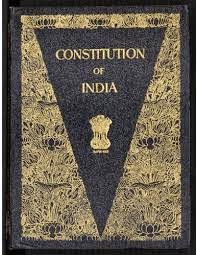Union Minister and Bharatiya Janata Party leader Ravi Shankar Prasad calling for a national debate on whether the words “socialist” and “secular” should continue to be part of the Preamble to the Constitution in the wake of the controversy over the Central government using a “watermark of the original Preamble” in advertisements released in the print media on the occasion of Republic Day — which did not have those words — has set off a debate on a constitutional amendment made during the period of the Emergency. It followed the Shiv Sena’s demand that the two key words be dropped altogether from the amended Preamble. In conceptually adding the words to the Preamble by means of the Constitution (42nd Amendment) Act, 1976, wherein the words “Sovereign Democratic Republic” were substituted with “Sovereign Socialist Secular Democratic Republic”, the Statement of Objects and Reasons appended to that Bill said it was to “spell out expressly the high ideals of socialism, secularism and the integrity of the nation, to make the directive principles more comprehensive and give them precedence over those fundamental rights which have been allowed to be relied upon to frustrate socio-economic reforms for implementing the directive principles.” That the working of the Constitution shows shortcomings, that the insertion of these two words was done during the period of the Emergency under Prime Minister Indira Gandhi and that the Indian ethos is ‘inherently secular’, making the inclusion redundant, are the main arguments put forward by the ruling dispensation now.
As many legal pundits have convincingly shown, the Preamble embodies the “basic philosophy and fundamental values on which the Constitution is based”. The inclusion of the words “socialist” and “secular” is best seen as an explication of the ideals modern India has drawn directly from the freedom struggle. Upendra Baxi, citing the great constitutional historian Granville Austin — despite his differences with him — recalls how the “roots of the directive principles” could be traced to the 1931 Karachi Congress resolution, and to the “two streams of socialist and nationalist sentiments in India that had been flowing ever faster since the late 1920s.” Even the Morarji Desai-led Janata Party government, in which the Jan Sangh was a constituent, did not think it necessary to delist these two words when they enacted the 44th Amendment to nullify the objectionable features introduced in the 42nd Amendment Act. Political scientists also emphasise that in the S.R. Bommai case, the Supreme Court held that “secularism is an integral part” of the Constitution’s basic structure. With or without the amended Preamble, the Indian Constitution will remain secular, but the signal the dropping of the words would send will be disconcerting to the minorities.

No comments:
Post a Comment